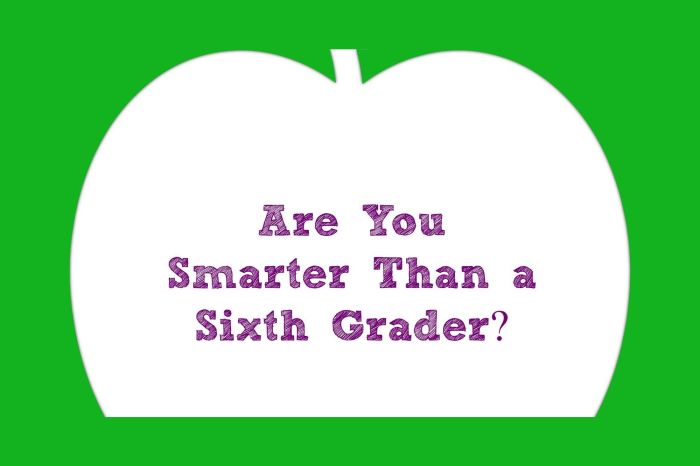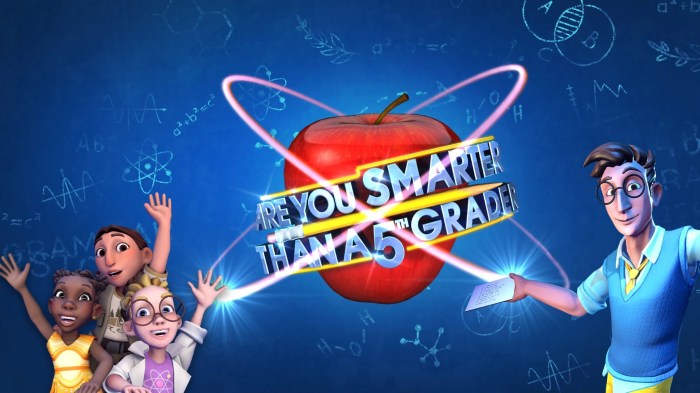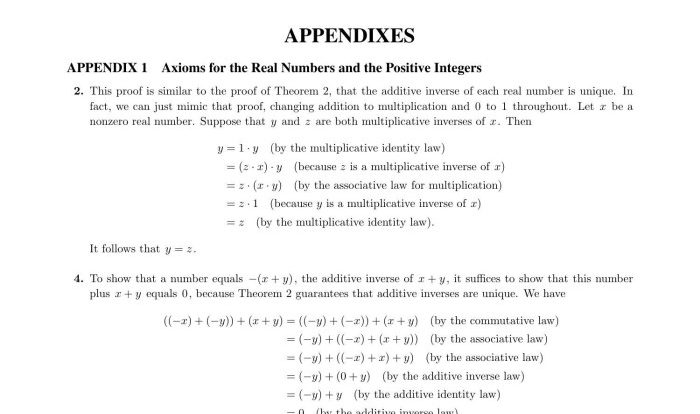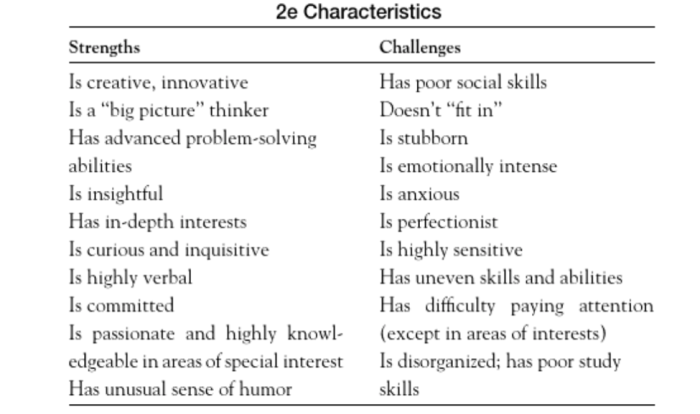Exploring the intriguing concept of “Are You Smarter Than a Sixth Grader?”, this article delves into the historical origins, educational implications, cognitive development, knowledge gaps, cultural and social factors, educational reforms, popular culture impact, and future research directions associated with this thought-provoking question.
Through an in-depth analysis, we aim to shed light on the complexities of intelligence, education, and cognitive development, while examining the potential implications for educational practices and our understanding of human intelligence.
Historical Context
The phrase “Are You Smarter Than a Fifth Grader?” originated as the title of a game show that premiered in the United States in 2007. The show featured adult contestants competing against fifth graders in a series of trivia challenges.
The phrase has since been used in popular culture to refer to the perceived gap in knowledge between adults and children.
Examples of the phrase’s use in popular culture include the television series “Are You Smarter Than a Fifth Grader?” (2007-2011), the film “Are We There Yet?” (2005), and the song “Are You Smarter Than a Fifth Grader?” by rapper Lil Yachty (2018).
Educational Implications

The phrase “Are You Smarter Than a Fifth Grader?” raises questions about the educational value of comparing one’s knowledge to that of a sixth grader. On the one hand, such comparisons can help adults identify areas where they may have gaps in their knowledge.
On the other hand, such comparisons may not be a reliable measure of intelligence, as they do not take into account factors such as experience, critical thinking skills, and problem-solving abilities.
Cognitive Development

Sixth graders typically have a strong foundation in basic academic skills, such as reading, writing, and mathematics. They are also developing their critical thinking and problem-solving abilities. Adults, on the other hand, have more experience and knowledge, but they may not have the same level of academic skills as sixth graders.
However, adults typically have a wider range of knowledge and experience than sixth graders. They have had more time to learn about the world and to develop their critical thinking and problem-solving abilities.
Knowledge Gaps
There are several areas of knowledge where adults may have gaps compared to sixth graders. These areas include:
- Basic academic skills, such as reading, writing, and mathematics
- Current events
- Popular culture
- Technology
Cultural and Social Factors: Are You Smarter Than A Sixth Grader

Cultural and social factors can influence our perceptions of intelligence. In some cultures, intelligence is seen as a fixed trait that cannot be changed. In other cultures, intelligence is seen as a malleable trait that can be developed through education and experience.
Our assessment of whether someone is “smarter than a sixth grader” may also be influenced by our own cultural and social biases. For example, we may be more likely to view someone who is from a different culture or social class as being less intelligent than someone who is from our own culture or social class.
Educational Reforms
The “Are You Smarter Than a Fifth Grader?” concept could have implications for educational reforms. For example, this concept could be used to inform curriculum development and teaching practices.
By understanding the knowledge and skills that sixth graders typically have, educators can develop curricula and teaching methods that are more effective at helping students to achieve their full potential.
Popular Culture Impact
The “Are You Smarter Than a Fifth Grader?” concept has had a significant impact on popular culture. The game show of the same name has been a popular success, and the phrase has been used in a variety of other contexts, such as television shows, movies, and songs.
The concept has also been used to promote educational initiatives. For example, the National Education Association has launched a campaign called “Are You Smarter Than a Fifth Grader?” that encourages adults to learn more about basic academic skills.
Future Directions
There are several potential future research directions related to the “Are You Smarter Than a Fifth Grader?” concept. These directions include:
- Investigating the relationship between intelligence and age
- Exploring the role of cultural and social factors in shaping our perceptions of intelligence
- Developing educational interventions that are based on the “Are You Smarter Than a Fifth Grader?” concept
Q&A
What is the origin of the phrase “Are You Smarter Than a Fifth Grader?”?
The phrase originated in the early 2000s as the title of a popular television game show in which adult contestants answered questions from elementary school textbooks.
What are the educational implications of comparing one’s knowledge to that of a sixth grader?
Such comparisons can highlight knowledge gaps, motivate learning, and provide insights into cognitive development and the effectiveness of educational practices.
What are the potential benefits and limitations of using such comparisons as a measure of intelligence?
While comparisons can provide a snapshot of knowledge, they have limitations as a comprehensive measure of intelligence, which encompasses a wide range of cognitive abilities and skills.



